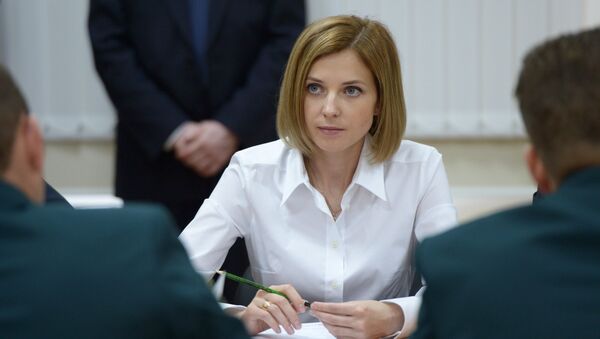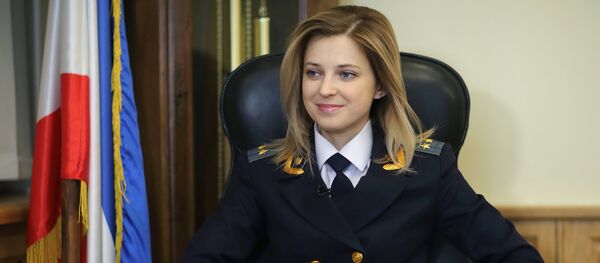The organizers of the food blockade are nothing, but "puppets" that work in the interests of others who seeking to settle scores with Crimea and hurt Russia, Poklonskaya said.
"The so-called blockade doesn't meet any international standards. Its organizers don't want to build anything, they can only destroy. They need to justify their existence," Poklonskaya said. "It would have been better if they restored a kindergarten somewhere, helped orphans or the homeless. But it probably won't bring them any benefits, as speculations around Crimea."
The blockade won't affect Crimean residents negatively, as the peninsula has abundance of food and other essential commodities. In fact, the blockade will hurt Ukrainian farmers who would have financial troubles due to the loss of the Crimean market.
On Sunday, activists of Ukraine's Right Sector movement blocked food supplies to Crimea in what they called "an open-ended food blockade" of the peninsula.
On Friday, Poklonskaya defied threats of violence by the Right Sector, saying the region's security agencies have the Ukraine border under control.
"Ukrainian radicals…do more harm to their own people. They are only a threat to Ukrainians since they believe in their impunity. All their threats against Russia and Crimea are empty words spoken from a safe distance," the prosecutor said.
Furthermore, the blockade showed that Kiev no longer views Crimea and its residents as its own.
Crimea rejoined Russia in March 2014, after more than 96 percent of voters backed the move in a referendum, which was not recognized as legitimate by Kiev and the West. Moscow maintains that the referendum was held in accordance with international law.



